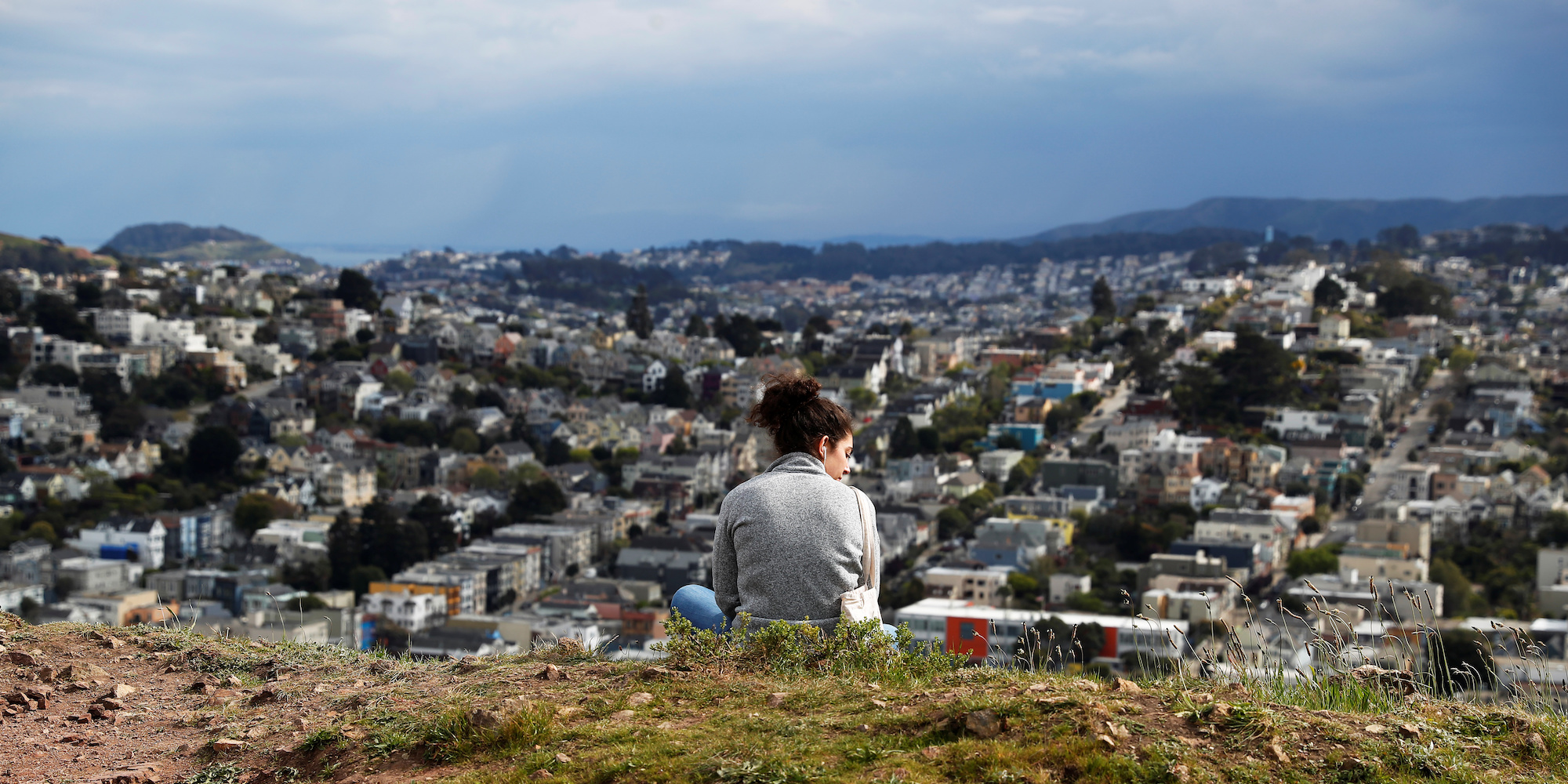- Lockdowns and “stay at home” orders in US states and cities mean that more than half of all Americans are now being told to stay at home.
- California Gov. Gavin Newsom issued a state-wide “stay at home” order on March 19, shutting down all non-essential businesses.
- Connecticut, Delaware, Illinois, Louisiana, New York, New Jersey, and more have followed suit.
- Public-health experts and government officials are stressing the importance of social distancing to slow the spread of the coronavirus.
- The number of states and cities under lockdown is continuously increasing; see Business Insider’s live map tracking such updates.
- Visit Business Insider’s homepage for more stories.
Editor’s note: This post was originally published March 15, then was updated with more lockdown orders on March 22. We are no longer updating it live; instead, find the latest map of state orders here.
As coronavirus case totals rise in the US – the country has confirmed more than 189,000 cases and over 4,000 deaths – governors are issuing unprecedented “stay at home” orders. The list of states that have announced lockdowns includes California, Colorado, Connecticut, Delaware, Hawaii, Idaho, Illinois, Indiana, Louisiana, Massachusetts, Michigan, Minnesota, Montana, New Hampshire, New Jersey, New Mexico, New York, Ohio, Oregon, Vermont, Washington, West Virginia, and Wisconsin.
Cities and counties, such as St. Louis, Missouri; and Houston and Dallas, Texas, are also under stay-at-home orders.
Taken together, that means more than half of Americans, are under such an order.
Those who've been told to stay at home or shelter in place are meant to avoid going outside except for essential purchases - like buying food or medicine - or for work in critical sectors.
The goal of these measures is social distancing - keeping people apart and limiting gatherings - in order to slow the spread of the virus.
Here are some of the measures local and state governments are taking to limit public gatherings.
Alaska issued two mandates that require residents to stay at home and only leave for essentials.
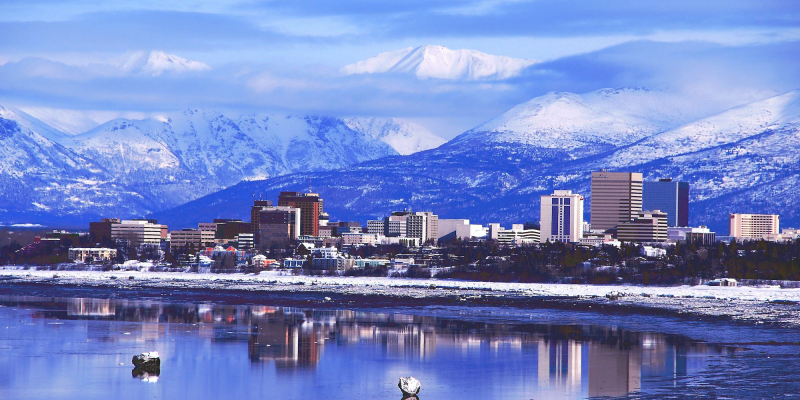
The mandates went into effect on March 28.
Arizona

Arizona Gov. Doug Ducey signed a shelter-in-place order that would go into effect on March 31st. The "Stay home, Stay healthy, Stay connected" initiative encourages residents to stay at home except for getting essential supplies and services.
Essential services also include getting medical care, taking care of family members or pets in another household, going outside to exercise as well as attending religious activities "in a manner that provides appropriate physical distancing to the extent feasible."
A 14 day stay at home order was issued in Atlanta on March 23.

Atlanta Mayor Keisha Lance Bottoms announced a 14-day stay at home order on March 23.
Lance Bottoms wrote, "as of now, this does not include essential businesses, parks, AtlantaBeltLine & restaurants serving takeout."
The order still allows people to leave their homes for essential services. Additionally, it also exempts those facing homelessness but encourages them to find shelter. The order also encouraged public and private institutions to help house those on the streets.
California was the first US state to issue a statewide stay-at-home order on March 19.

California Gov. Gavin Newsom issued a state-wide order for all 39 million California residents to stay at home. It superseded local measures already in place.
"This is not a permanent state, this a moment in time," he said. "And we will look back at these moments as a critical decision."
All non-essential businesses are closed, though Newsom said those who work in critical sectors should go to work and that grocery stores, pharmacies, and banks will stay open.
Newsom said the order would last for at least eight weeks.
"We could not give you a deadline that we really could believe in," he said. "This is a dynamic situation."
Colorado Gov. Jared Polis issued a mandatory stay-at-home order, effective March 26 at 6 a.m. It's set to last through April 11 unless rescinded or modified.
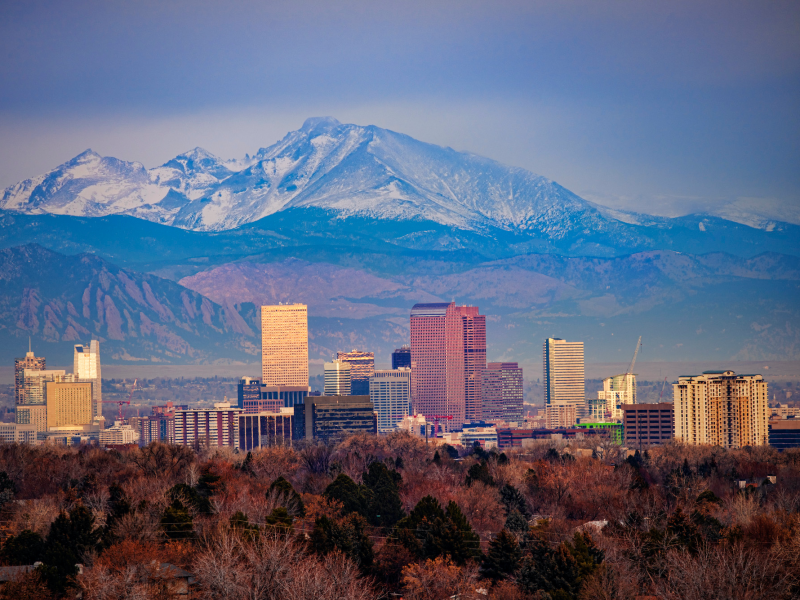
Denver, Colorado had been under a stay at home order from March 24.
Connecticut issued a stay-at-home order that went into effect March 23.
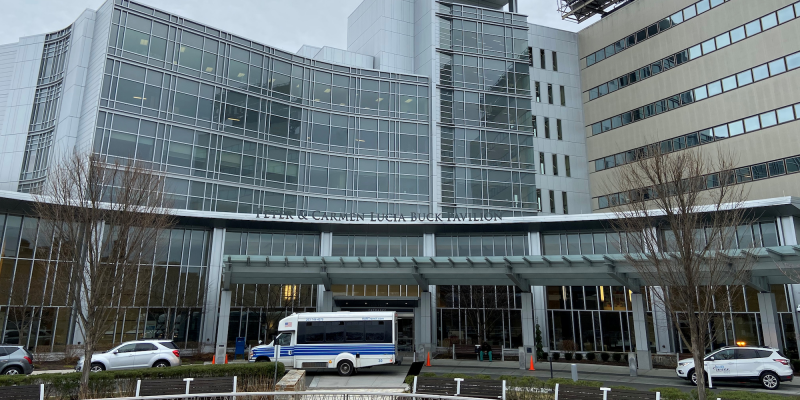
Gov. Ned Lamont ordered non-essential workers to stay home, local out the CT Post reported.
The "Stay Safe. Stay Home." initiative went into effect at 8 p.m. local time on March 23 and is expected to end on April 22.
The measure does not apply to journalists, grocery stores, gas stations, healthcare offices, pharmacies, child care, banks, public transportation, auto repair, vehicle repair shops, large construction projects, major defense contractors, and shipping businesses.
Delaware Gov. John Carney issued a stay-at-home order that will go into effect on March 24.

Carney ordered all residents to stay at home whenever possible and closed all non-essential business. The orders go into effect at 8:00 a.m. on Tuesday, March 24, and will remain in place "until the public health threat is eliminated."
Idaho Gov. Brad Little ordered residents to remain in their homes on March 25, aside from essential travel, for the next 21 days.

"Idaho is now in a new stage," Little said Wednesday, according to the Idaho Statesman. "We absolutely have to have this take place."
Florida Gov. Ron DeSantis announced an order on March 17 to close all bars, nightclubs for 30 days. State parks closed on March 22.
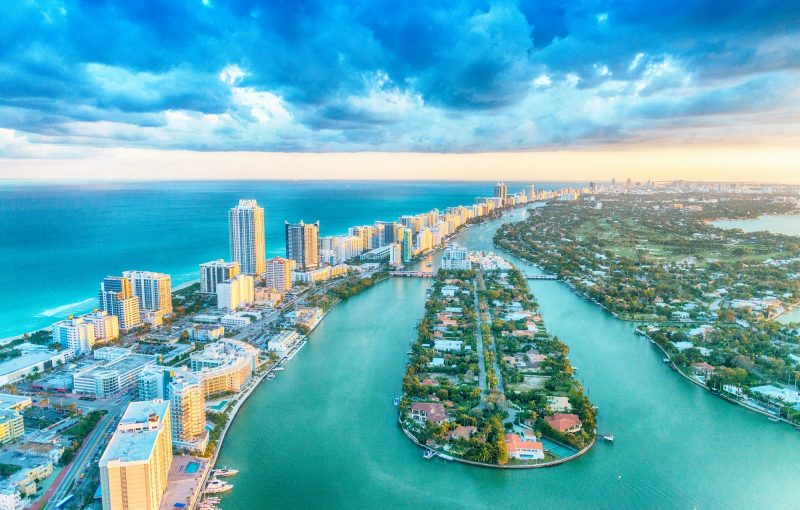
He said groups of no more than 10 people would be allowed at the beach and said restaurants should operate at 50% capacity.
Hawaiian Gov. David Ige issued a "stay at home" order for Hawaii residents on March 23.

The governor's order superseded island-specific ordered issued before.
Previously, the Hawaiian island of Oahu had issued a stay-at-home order that went into effect March 23, and Maui has a stay-at-home order that begins March 25.
Illinois issued a stay at home order on Friday, March 20, effective March 21.

The will last till April 7, but could also be extended. Residents are allowed to grocery shop, get prescriptions, and go outside for fresh air.
Gov. J.B. Pritzker closed all bars and restaurants in the state on March 16.
A stay-at-home order went into effect on March 24 in Indiana.
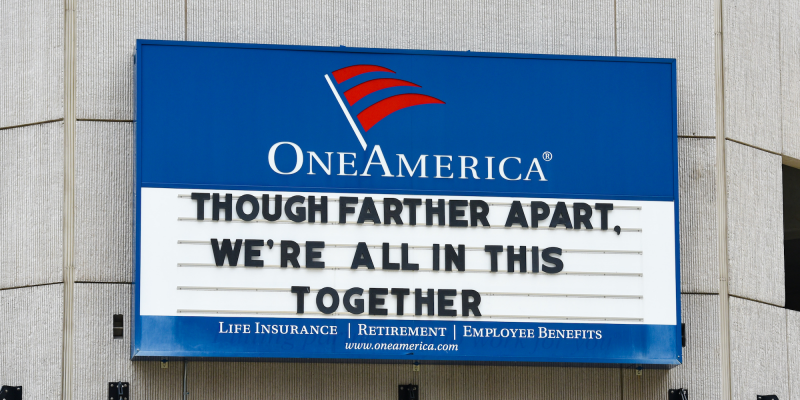
Gov. Eric Holcomb issued a stay-at-home order that will be in effect till at least April 6 but can be extended.
"Unless you work for an essential business or are doing an essential activity, you must stay home," the order read.
Kansas stay-at-home order went into effect on March 30.

Kentucky Gov. Andy Beshear ordered all non-essential businesses to close by March 26.
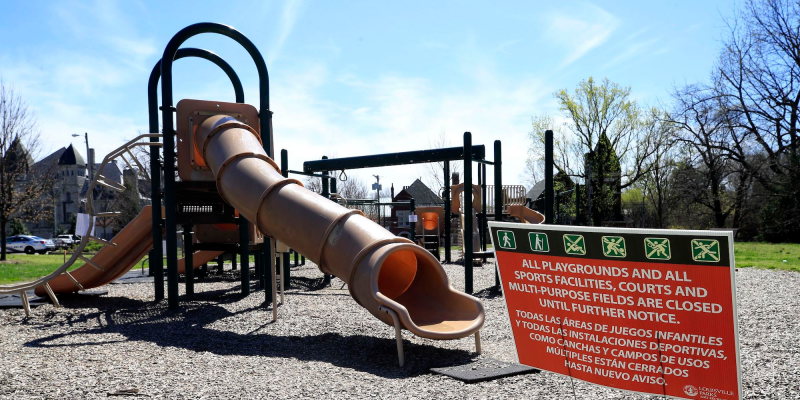
An executive order also encouraged residents to "Stay Healthy at Home."
Louisiana's stay-at-home order went into effect on Monday, March 23 — it directs residents to limit movements outside of their homes beyond essential needs.
Today, I am issuing a statewide Stay at Home order that goes into effect at 5 p.m. Monday, March 23, to further fight the spread of COVID-19 in Louisiana, as the number of confirmed cases is now more than 800. #lagov #lalege
📰: https://t.co/wOccTZmd0z pic.twitter.com/v5XHoMseQZ
— Gov. John Bel Edwards (@LouisianaGov) March 22, 2020
Residents are allowed to go to the grocery store or pharmacy, attend doctor's appointments, get takeout from restaurants, care for family members, and go outside while maintaining a 6-foot distance between themselves and others.
Maine's stay-at-home order will go into effect on April 2.
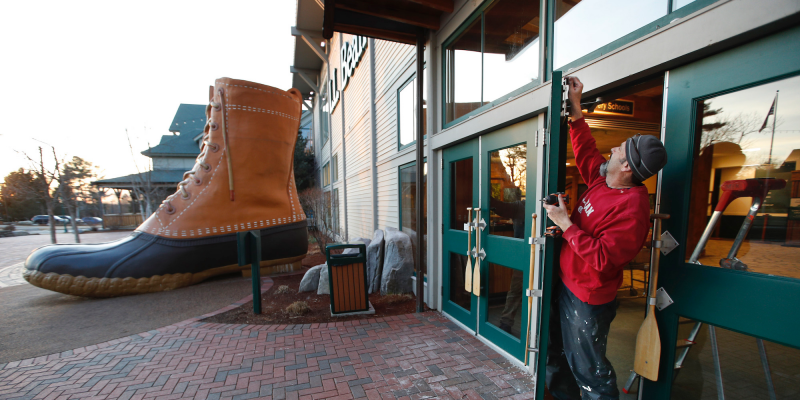
Gov. Charlie Baker issued a stay at home advisory for Massachusetts that goes into effect March 24.
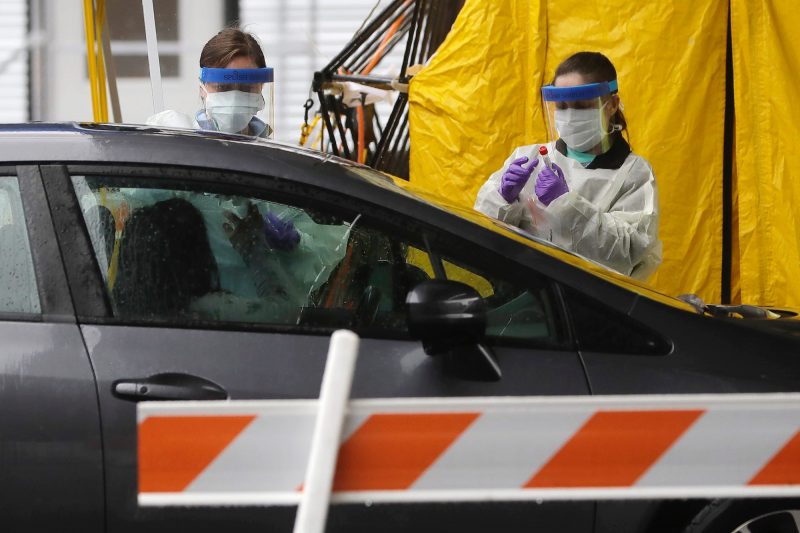
Gov. Charlie Baker had previously limited public gatherings to 25 people or fewer. Hospitals have been directed to postpone elective surgeries to devote resources to coronavirus treatment.
Maryland
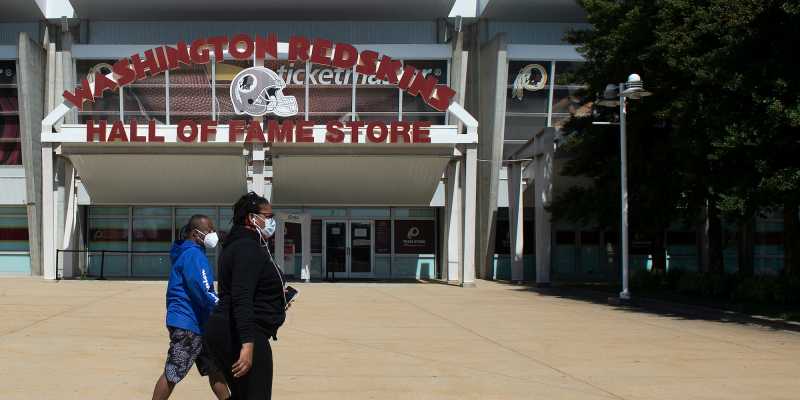
Maryland Gov. Larry Hogan issued a stay at home order effective March 30.
The order means residents can leave their homes unless its for essential needs like getting food or healthcare. According to local station WAMU, people who violate the order can face a year in prison, be fined up to $5,000, or both.
"We are no longer asking or suggesting Marylanders to stay home, we are directing them," Hogan said according to WAMU.
Michigan Gov. Gretchen Whitmer signed the "Stay Home, Stay Safe" order on March 23. It's set to go into effect at 12:01 a.m. on March 24 and last for three weeks.
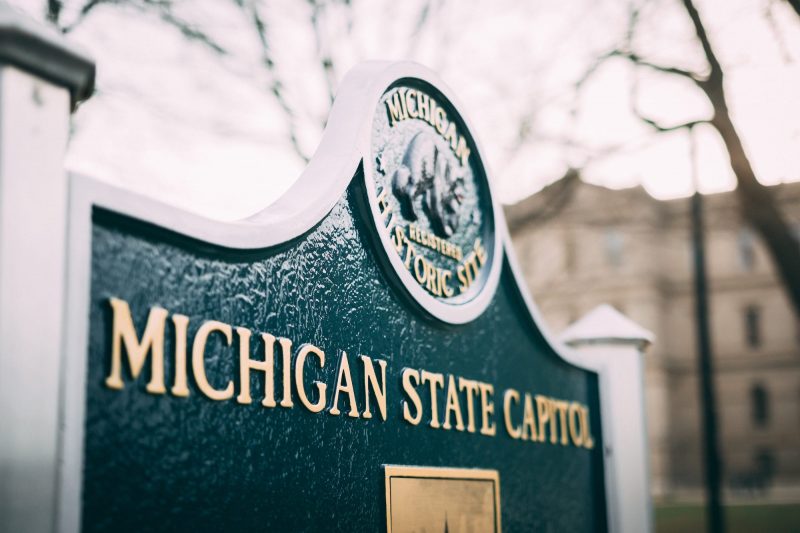
"In just 13 days, we've gone from 0 to over 1,000 COVID-19 cases," Gov. Whitmer said. "This is an unprecedented crisis that requires all of us working together to protect our families and our communities. The most effective way we can slow down the virus is to stay home."
Previously, she ordered bars, theaters, casinos, and other public spaces to close.
Minnesotans are also being told to stay home after March 27 for the next two weeks.

"A stay at home order directs Minnesotans to limit movements outside of their homes beyond essential needs. By limiting social interactions, we decrease the chance of transmission of COVID-19 and help our health care sector prepare for increased demands," the state government wrote in its FAQ.
Missouri's two largest metro areas, St. Louis and Kansas City, both have stay-at-home orders.
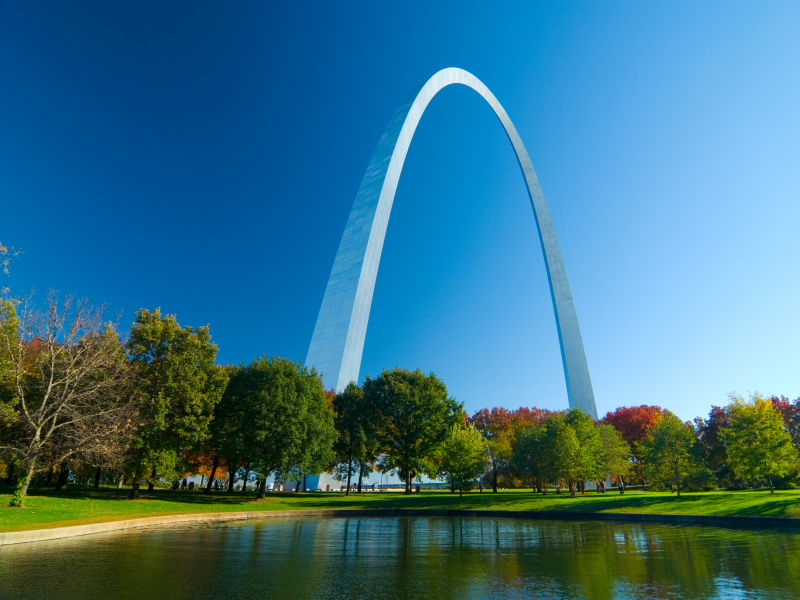
Montana Governor announced that residents will be required to shelter in place on March 26.

Gov. Steve Sisolak ordered the closure of non-essential businesses in Nevada on March 17.

Sisolak announced that all non-essential businesses would be closed for 30 days, including gaming machines, devices, tables, games, and any equipment related to gaming activity in Las Vegas.
Sisolak also instructed all Nevada residents to stay at home and said restaurants and bars would be able to continue serving food for drive-thru, take-out, or delivery only.
New Hampshire Gov. Chris Sununu issued a stay-at-home order for the state on March 26, effective March 27.

New Jersey Gov. Phil Murphy signed an executive order on March 21 telling residents to stay at home until further notice.

The order closes all non-essential businesses and prohibits social gatherings. Work-from-home arrangements are mandated for employees when possible.
New Mexico Gov. Michelle Lujan Grisham announced on March 23 that she was instructing state residents to stay at home, save for essential outings.
Today I am announcing that effective tomorrow at 8 AM, New Mexico will be under a statewide stay-at-home instruction. All New Mexicans are instructed to stay at home except for outings essential to health, safety, and welfare. #AllTogetherNM #coronavirus pic.twitter.com/py4oeOjWm1
- Michelle Lujan Grisham (@GovMLG) March 23, 2020
New York's a stay-at-home order, called "New York State on PAUSE," went into effect on March 23.

"New York State on PAUSE" cuts down on outdoor activity and mandates that New Yorkers cancel all non-essential gatherings and stay at least 6 feet away from others in public spaces.
All non-essential businesses were shut down. Hospitals, public transportation, pharmacies, grocery stores, and other essential businesses remain open. Businesses that don't close could face civil fines.
Cuomo said the measure could last for months. As of Monday, the state had more than 20,000 cases and 157 deaths.
"This is the most drastic action we can take. This is not life as usual. Accept it, realize it and deal with it," Cuomo said, according to The Wall Street Journal.
North Carolina Gov. Roy Cooper ordered all bars and restaurants in the state to shut on March 17.
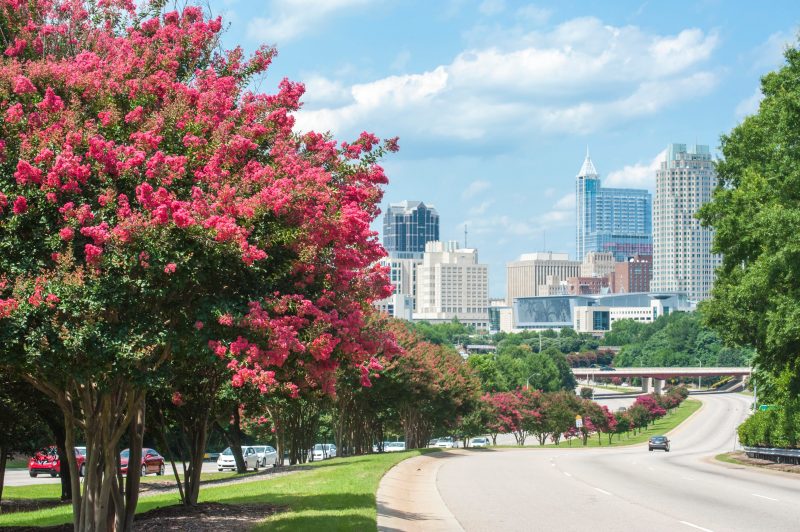
Restaurants are allowed to continue offering takeout and delivery.
Cooper also expanded unemployment benefits to help North Carolina workers impacted by the spread of the disease.
Ohio officials signed a stay at home order on March 22.
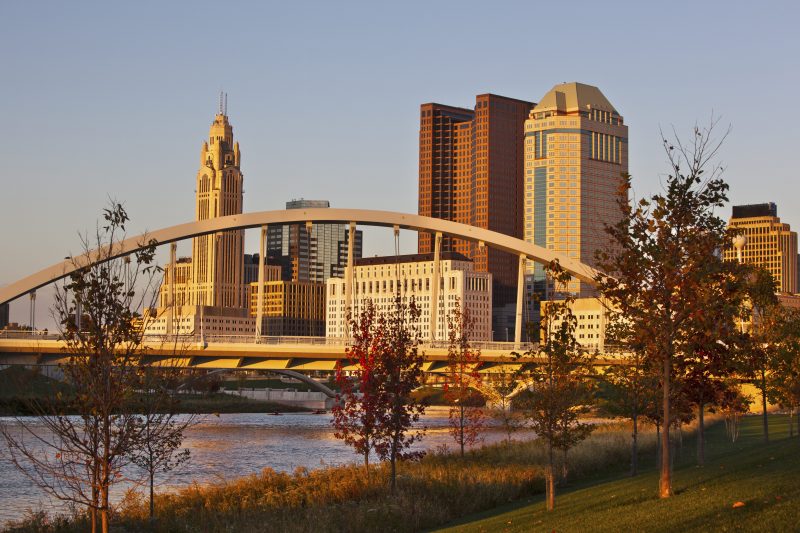
Gov. Mike DeWine announced that the state would enter a period of "stay at home" a week after ordering all bars and restaurants in Ohio to close.
"We are now at a new stage, a continuation of what really has been going on," DeWine said.
Oregon issued a stay at home order on March 23.
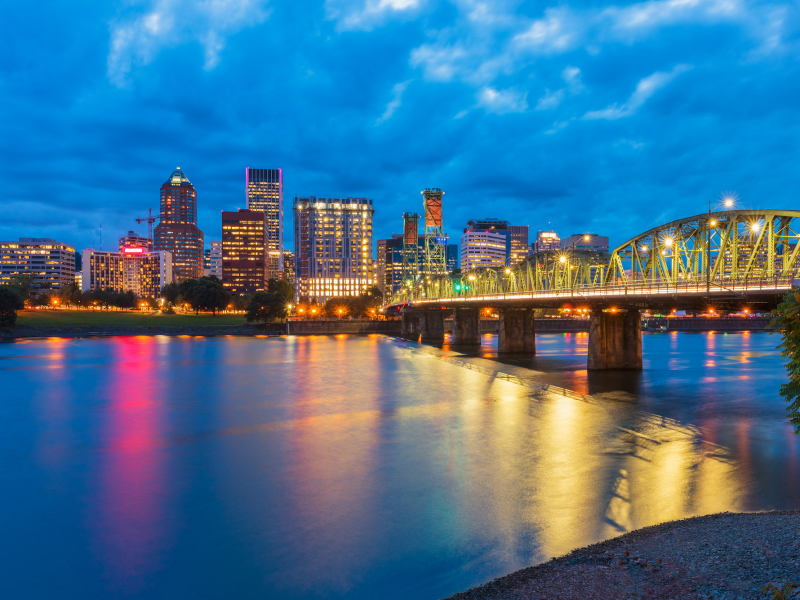
"I am issuing a new executive order further requiring social distancing measures because we know this is the most effective way to flatten the curve and slow the spread of this virus," Gov. Kate Brown said in a statement.
Pennsylvania Gov. Tom Wolf issued a stay at home order for seven counties — broadening the one in Philadelphia — on March 23.
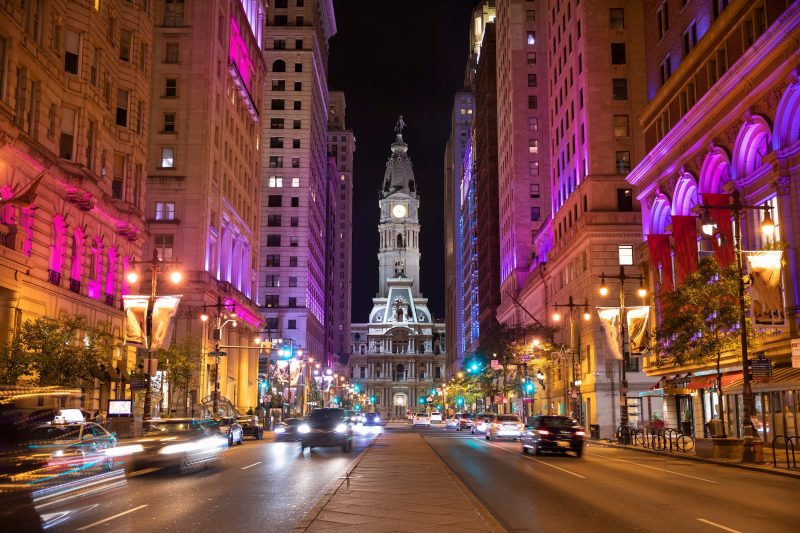
Gov. Wolf announced the stay-at-home order for Bucks, Chester, Delaware, and Montgomery counties; Allegheny County, which includes Pittsburgh; and Monroe County in the Pocono Mountains.
Puerto Rico Gov. Wanda Vazquez put a stay-at-home order in place on March 15.
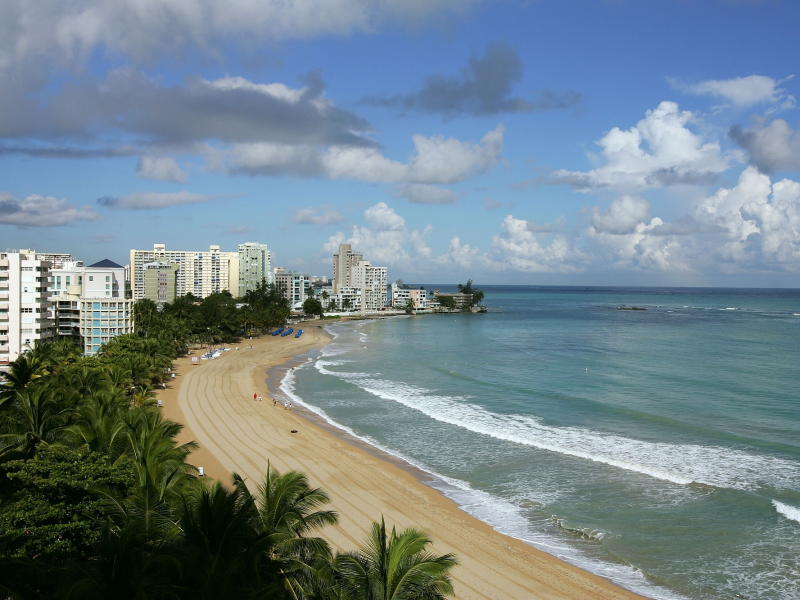
Puerto Rico has a curfew, and nonessential businesses are shut down.
Vazquez imposed the strict stay-at-home measure early to combat the coronavirus amid fears that the island's health system is too weak to handle a high caseload after Hurricane Maria.
Rhode Island's stay-at-home order went into effect on March 28.

Tennesse's stay-at-home order went into effect on March 31st.

Vermont Gov. Phil Scott issued a "stay home, stay safe" order that went into effect at 5 p.m. on March 25.
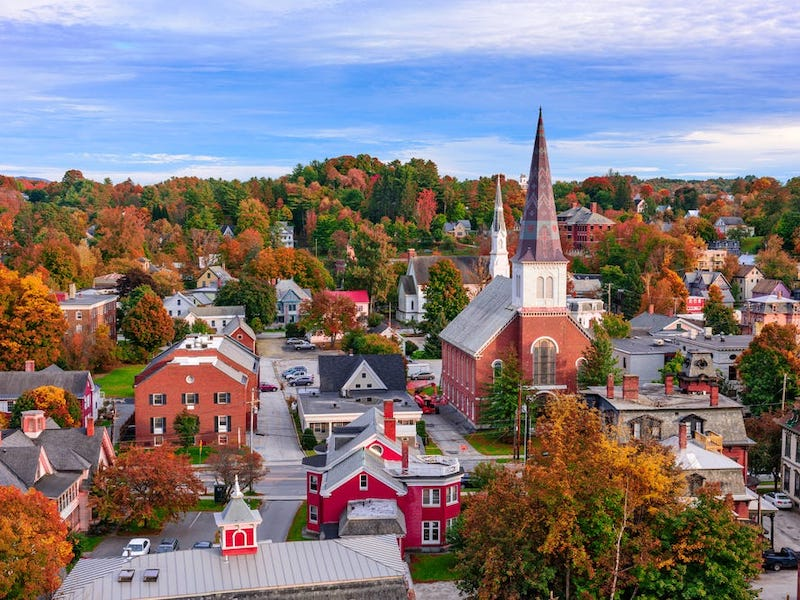
Virginia Gov. Ralph Northam issued a stay-at-home order that into effect on March 30.

Washington residents are required to stay at home immediately starting Monday, March 23.
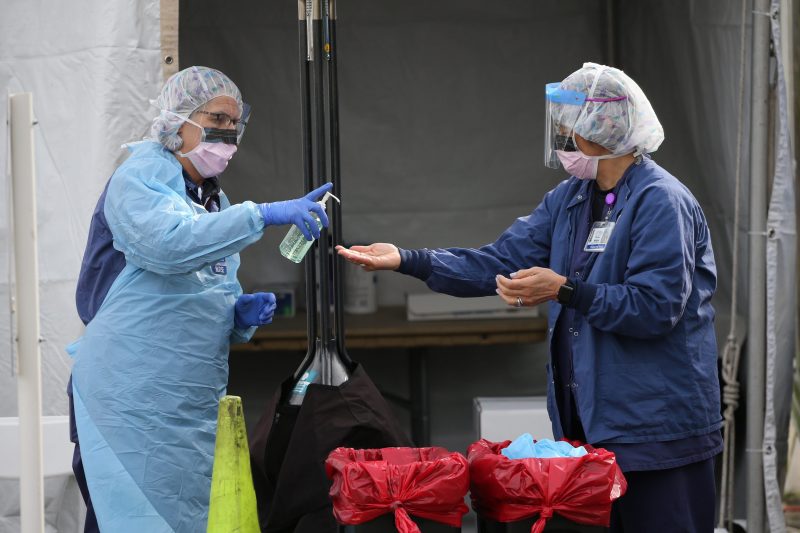
Residents can still go to get groceries and other essentials or go to the doctor. While they can still go outside, they must remain at least 6 feet away from each other.
Non-essential businesses have 48 hours to close unless employees can work from home.
Grocery stores, pharmacies, and take-out only restaurants are allowed to stay open.
The measure will be in place for at least two weeks.
The state is one of the most effected areas in the country, with more than 2,200 people infected and over 110 deaths.
Washington, DC, Mayor Muriel Bowser asked all residents to stay at home.

D.C. is running less public transportation and has closed roads to restrict access to heavily trafficked areas like the Tidal Basin, where cherry blossoms are in bloom.
Bowser asked residents to only go out for "essential services."
West Virginia Gov. Jim Justice ordered residents to stay at home starting March 24.
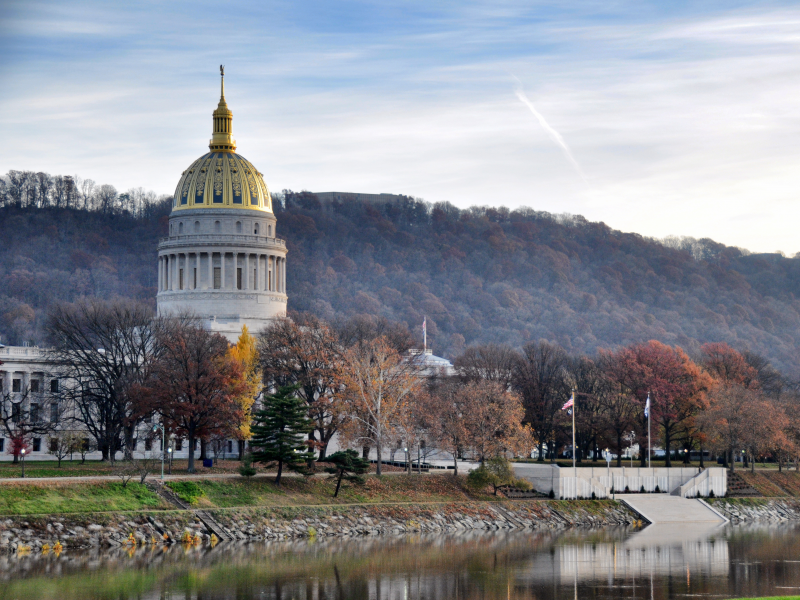
Wisconsin Gov. Tony Evers announced on March 23 that he would issue a stay-at-home order the following day.

Evers said he was closing all nonessential businesses and urging people to stay in their homes.
"I know this has been difficult and has disrupted the lives of people across our state," Evers wrote Monday morning on Twitter. "That's why issuing a #SaferAtHome order isn't something I thought we'd have to do, and it's not something I take lightly. But here's the bottom line: Folks need to start taking this seriously."
Wyoming's stay-at-home order went into effect on March 28.

